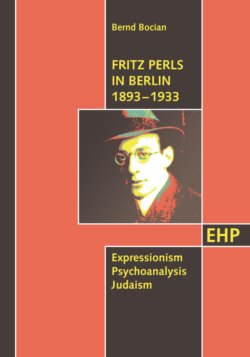Читать книгу Fritz Perls in Berlin 1893 - 1933 - Bernd Bocian - Страница 26
На сайте Литреса книга снята с продажи.
3.5.2 Grand Master Nathan Perls. Revisionist and Nonconformist
ОглавлениеIt can also be said of Perls’s father that his lodges were genuinely humanistic, independent of any overarching entities, undogmatic, apparently managed in a freehanded, companionable style rather than a hierarchical authoritarian one, and fluid and adaptable as organizations. It might have been a case of a German Jew creating a microcosm in which he repeatedly attempted to realize the enlightened, humanistic dream of a homeland, a community, an identity that was impartial to religion, race, and gender for himself and some of his brothers or sisters. And apparently it was not dogmatic adherence to the rituals that held these lodge communities together, but rather the members’ social relationships among each other, however well or poorly they may have functioned.
Nathan Perls based his ideological orientation on the principles of the German Union of Grand Lodges. The first three articles of his Independent Order of Freemasons essentially state the following: The organization is a »fraternal, humanitarian association for the cultivation of noble human qualities« (ibid., 12 f.). The ultimate criterion of behavior »is the pure, human moral code,« and »The Freemasons worship God as the highest ideal and the center of spiritual life« (ibid.). In a later announcement, the form of religion is proclaimed to be the personal affair of the respective member; this differed from officially accepted Christian Freemasonry:
The »Große Freimaurerloge Kaiser Friedrich zur Duldsamkeit« is based entirely on a foundation of humanistic principles, and it respects all religious convictions to the extent that they find their natural expression in the recognition of a higher being. Although it does not view the practice of religion as the natural foundation of Freemasonry, it considers religious principles a prerequisite for Masonic activity, while not making the opportunity to participate in the work of the Masonic Confederation dependent on the form of religious practice« (ibid., 16).
Thus, even Nathan Perls was a reformer, a revisionist, who placed human relationships above commitment to dogma. His son, like many a rebel from a good family, sought a new home and identity in other contexts. For both of them, the goal always was the idea of a community that was independent of nationality, race, and religion. Numerous young middle-class rebels sought this home in socialism or, as Fritz Perls did during his middle years, in a mixture of socialism and psychoanalysis. After taking leave of organized Freudian psychoanalysis, Fritz Perls organized his own independent »Gestalt Lodge« in New York together with a small group of founding members. He then traveled widely, and diligently established branches in various cities and locations although without prescribing their development in an authoritarian form or manner. At the very end, Fritz Perls founded his own »independent order of humanists« in the form of a Gestalt kibbutz in Canada with himself as Grand Master. It remains to be mentioned that his German given name, as the first and only son of Nathan Perls, can probably be traced to Crown Prince Friedrich who was revered by Freemasons, was a Freemason himself, and was additionally said to have a liberal attitude toward Jews.
Incidentally, the many accusations brought against Nathan Perls, including that he had introduced his father-in-law as an English dignitary, had to be retracted when he himself brought a lawsuit against his main accuser in the year 1912. Showing no fear of the many witnesses scheduled to testify against him, he demanded that these individuals confront him in court or, at a minimum, be re-examined by the court itself. At the new court hearing, the testimony of the witnesses favored Nathan Perls, and the accusations »could not be shown to have merit in any of the instances« (ibid., 21).
In contrast to the Jacobin Freemason traditions in France, official German Freemasonry exhibited Prusso-German nationalist sentiment and was politically conservative, as was the majority of the German bourgeoisie during the Wilhelminian era (see Kischke 1999, 59; Peters n. d., 178, 181). Most of the lodges later tried to adapt to the Nazi régime, as did almost all bourgeois organizations, so that, for example, the first regular Lodge had already introduced the »Aryan statute« as a preventive measure in 1930, pursuant to which Jews who had converted to Christianity were also barred from membership (see Melzer 1999). The notion that German Freemason lodges together with Jews and Bolshevism formed the core of a world conspiracy was an unadulterated Nazi fantasy.
